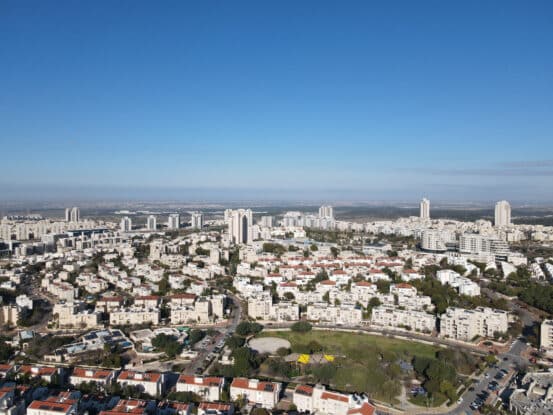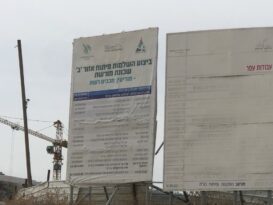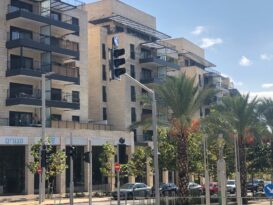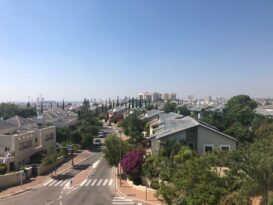As part of the plan approved last week, 39,000 new apartments will be built in Modi’in, a new mixed-use business district will be built in the northwestern part of the city, a hospital and an academic institution will be established, and 22,000 dunams within the municipal boundaries of the city will be preserved as green areas.
The District Planning and Building Committee of the Central District decided last week to approve the master plan for the city of Modiin Maccabim Reut. The plan includes the addition of around 39,000 housing units that, when fully developed, will bring the city’s population to 240,000 residents. The plan also includes the establishment of a new business district, a regional hospital, and an academic institution. The plan applies to the entire area of the city, covering 50,000 dunams, of which about 22,000 dunams are preserved as open spaces, and will constitute a long-term policy for the planning and development of the city.
Modi’in was founded during the 1990s in the Judean Hills area and is considered the significant urban center in the area between Israel’s two largest metropolitan cities – Tel Aviv and Jerusalem. In 2003, it was merged with two rural communities – Maccabim and Reut. Since its inception, it has been growing at a high rate, and today the number of its inhabitants reaches close to 100,000 people. According to data from the Central Bureau of Statistics (CBS), the annual growth rate of its population is 2.6% – a particularly high figure. At the same time, The city has also become one of the most established cities in Israel and has a socioeconomic rating of 9 out of 10. The master plan that has now been approved outlines how the city is expected to continue to develop in the coming decades.
In addition to apartments, the plan adds approximately 1.7 million square meters of employment and commercial space to the city, that is through the construction of a new business district in the northwestern part of the city. This is be based on a mix of uses that will combine residential, employment, commerce, culture, and leisure, as well as public institutions, and which will serve as the link between the existing city and the developing technological park nearby, as well as the green areas surrounding the city, which are adjacent to the new business district. The plan proposes the establishment of public institutions on a regional scale: a hospital, and a foundation for higher education. In order to increase accessibility to this area of the city, the plan stipulates the extension of the existing railway line, as an underground extension from the Modi’in Central station in the direction of the new business district.
In addition, the plan emphasizes the preservation of the many open spaces that exist within the municipal boundaries of the city and includes guidelines for preserving them and maintaining the connection to the JNF forests that surround the city, and strengthening the national ecological corridor that crosses the city. The plan states that the southern hills overlooking the Ayalon Valley, which are part of the ecological corridor, will become a National Park.
Following the approval of the plan, the Mayor of Modiin Maccabim Reut, Haim Bibas, said, “The approval of the master plan is an unequivocal statement about the continued establishment of the city as one of the strongest and leading cities in Israel. When planning the master plan, we emphasized a number of overarching goals: the addition of housing units in the city in a diverse mix, while adhering to the principle of maintaining at least 25% of them for the benefit of the city’s children. Maintaining the special character of the city, while preserving the green areas surrounding it, turning the southern hills into a national park, and positioning the ecological corridor as an integral part of the city of Modiin Maccabim Reut. I will continue to work vigorously to promote the principles of the master plan and implement them in practice in order to keep Modiin Maccabim Reut as the city of the future, even 25 years after its establishment, which includes modern business centers, hotels, and an advanced transportation system in the heart of the State of Israel in Israel, between Jerusalem and Tel Aviv.”
Deputy Chairman of the Central District Committee and District Planner, Guy Kaplan, said: “The plan enables urban development that includes mixed uses and density in the new construction complexes while preserving the value-based open spaces surrounding the city and creating an open and high-quality continuum with a transportation solution that is based on public transportation including bicycle paths, public transport routes and connections to the city’s train stations. In addition, the plan enables a variety of housing units that will provide a solution for all types of households living in the city.”






